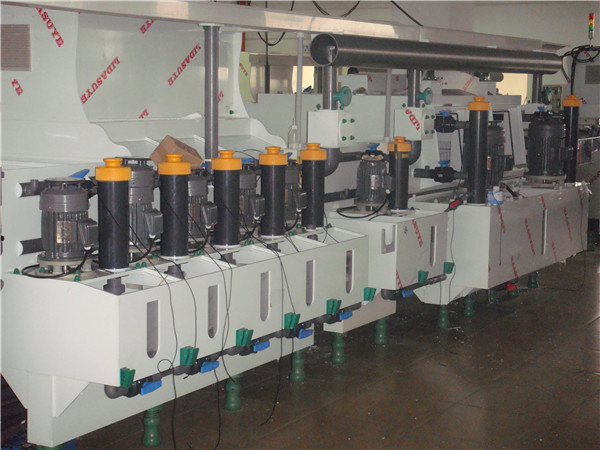Nov . 27, 2024 06:43 Back to list
Exploring the Benefits and Applications of UPVC Piping Solutions for Modern Construction
The Benefits and Applications of UPVC Pipes
In modern construction and plumbing, the importance of selecting the right materials cannot be overstated. One such material that has gained significant popularity in recent years is unplasticized polyvinyl chloride, commonly known as UPVC. UPVC pipes have emerged as a preferred choice for various applications due to their unique properties, durability, and cost-effectiveness.
What is UPVC?
UPVC is a type of plastic that is rigid and does not contain any added plasticizers, which makes it stronger and more resilient than traditional PVC. It is typically used in a variety of applications, including plumbing, drainage, and electrical conduits. UPVC pipes are lightweight, easy to handle, and resistant to corrosion, making them ideal for both residential and industrial purposes.
Key Benefits of UPVC Pipes
1. Durability One of the most significant advantages of UPVC pipes is their durability. Unlike metal pipes, which can corrode over time, UPVC pipes are resistant to rust, corrosion, and chemical exposure. This longevity minimizes the need for frequent replacement, making them a cost-effective option in the long run.
2. Low Maintenance UPVC pipes require minimal maintenance compared to other plumbing materials. Their smooth surface prevents the accumulation of debris, reducing the likelihood of clogs and blockages. This ease of maintenance is a huge benefit for both homeowners and professionals.
3. Cost-Effectiveness The initial cost of UPVC pipes is generally lower than that of metal or other plastic options. Additionally, their longevity and low maintenance requirements contribute to overall savings. Reduced labor costs for installation and maintenance also make UPVC a smart financial choice.
upvc pipe

4. Eco-Friendly UPVC is a recyclable material, which contributes to environmental sustainability. Its production involves fewer harmful chemicals compared to other plastic types, making it a better choice for environmentally conscious builders and consumers.
5. Versatility UPVC pipes come in various sizes and are suitable for a wide range of applications, from residential plumbing to sewage and industrial processes. Their versatility extends to compatibility with different fittings and joints, enhancing their usability in complex installations.
Applications of UPVC Pipes
UPVC pipes have a vast array of applications across various sectors. In residential construction, they are commonly used for potable water supply, drainage systems, and waste disposal. The plumbing industry increasingly favors UPVC for its reliability and efficiency in transporting water.
In industrial settings, UPVC pipes are utilized for chemical transfer, wastewater treatment, and irrigation systems. Their ability to withstand high-pressure conditions makes them an ideal choice for many industrial applications.
Moreover, in the construction of infrastructure, such as roads and bridges, UPVC pipes are often employed for stormwater drainage systems. Their resistance to environmental stressors ensures that they can effectively manage water flow, reducing the risk of flooding and erosion.
Conclusion
In summary, UPVC pipes are an exceptional choice for plumbing and construction due to their durability, low maintenance, cost-effectiveness, and versatility. As industries and homeowners increasingly seek sustainable and reliable solutions, the popularity of UPVC pipes continues to rise. Whether for residential use or large-scale industrial applications, UPVC pipes offer a practical and efficient answer to modern plumbing and drainage needs. As technology advances and innovation in materials continues, UPVC is likely to play an even larger role in shaping the future of construction and plumbing.
-
High-Quality PPR Pipes and Fittings Durable ERA PPR & PVC PPR Solutions
NewsJul.08,2025
-
Black HDPE Cutting Board - Durable, Non-Porous & Food Safe HDPE Plastic Cutting Board
NewsJul.08,2025
-
High-Quality CPVC Panel Durable HDPE & PVC Panels Supplier
NewsJul.08,2025
-
Double PE Welding Rod Supplier - High Strength, Durable & Versatile Welding Solutions
NewsJul.07,2025
-
High-Quality PVC-O Pipe Supplier Durable 75mm PVC Pipe & Connections Leading PVC Pipe Company
NewsJul.07,2025
-
HDPE Drainage Pipe Supplier – Durable & Corrosion-Resistant Solutions
NewsJul.06,2025

